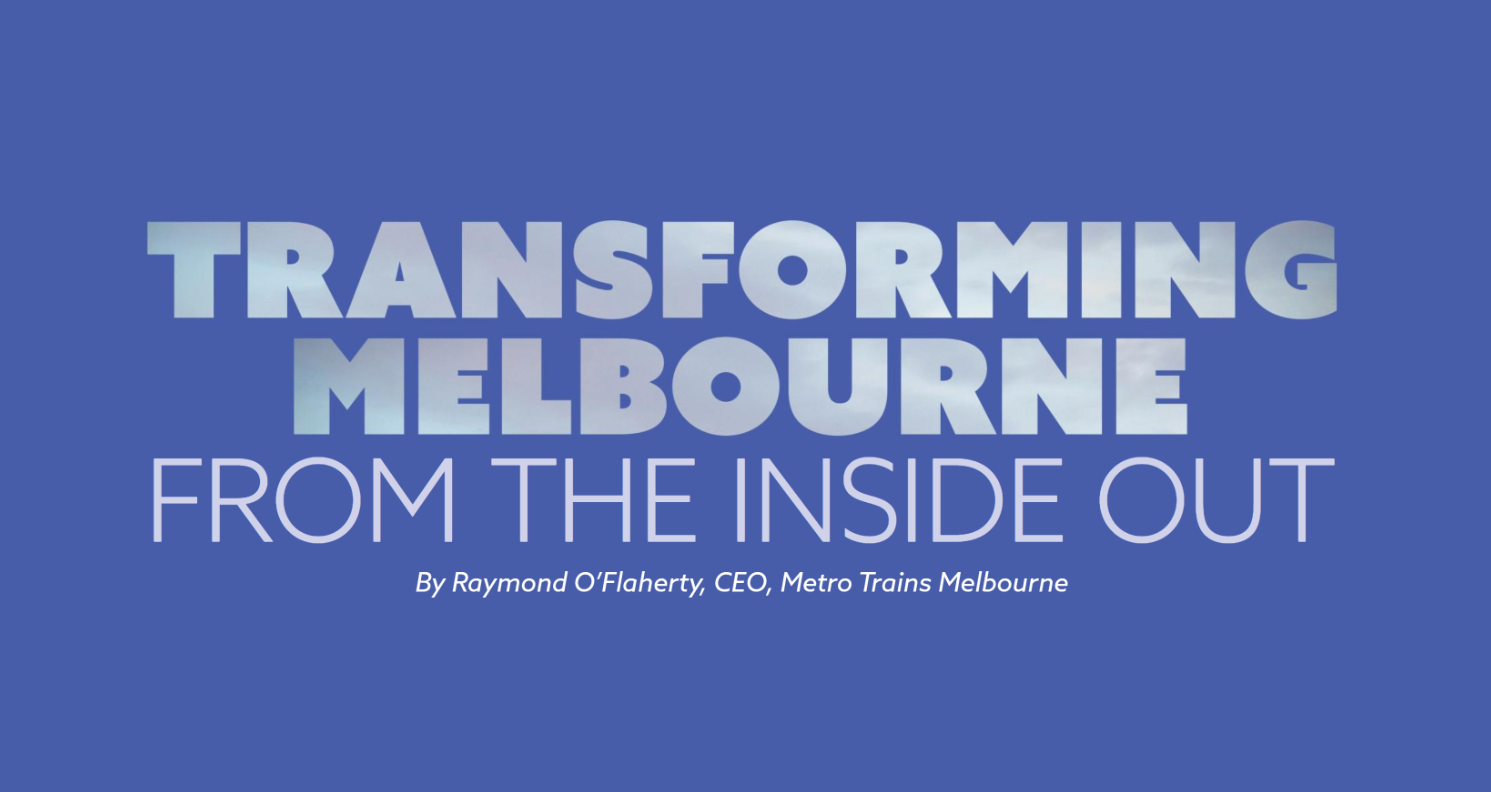Transforming Melbourne, from the inside out
Transforming Melbourne, from the inside out
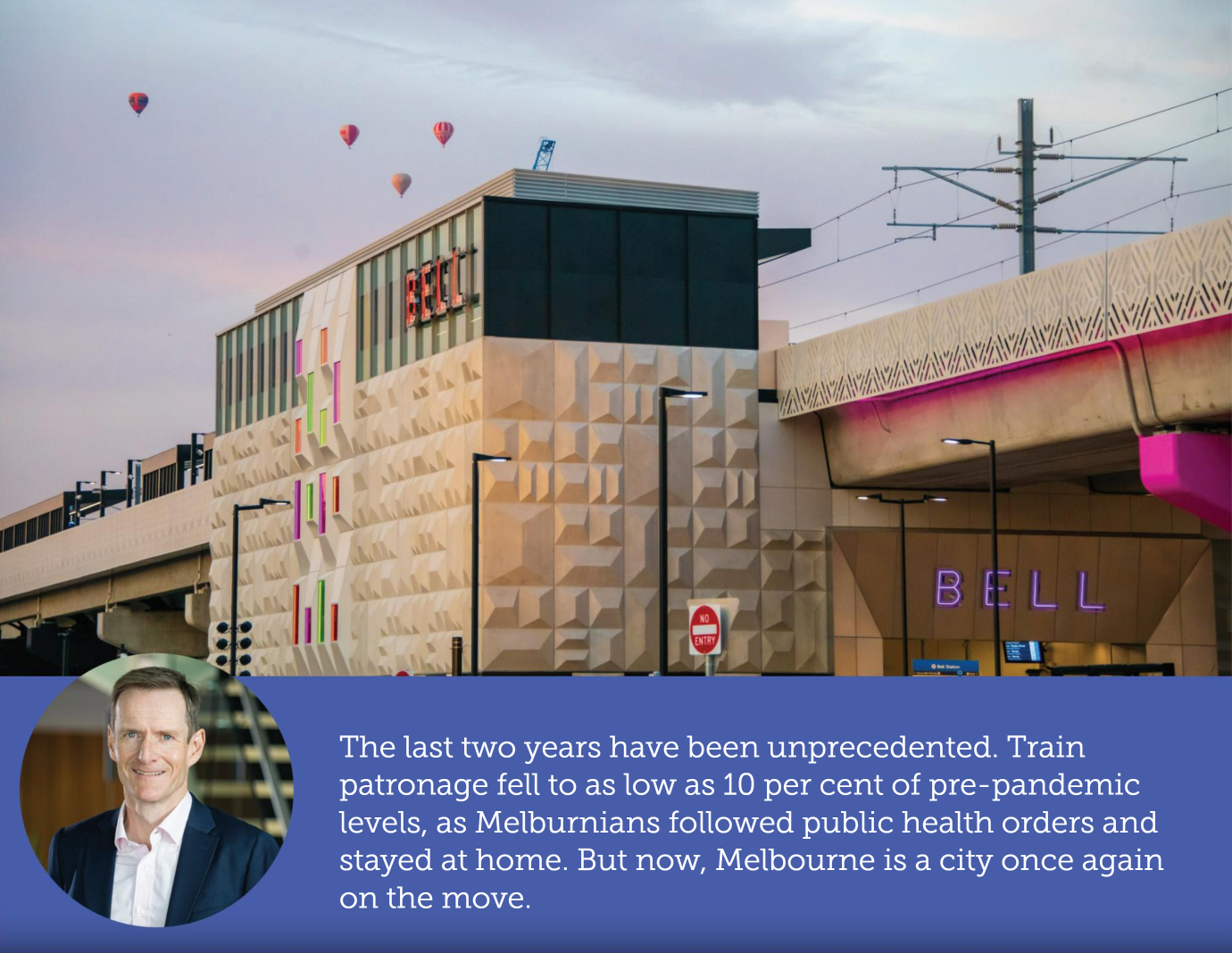
Similar record patronage declines were seen in London and New York. Patronage on The Tube dropped by 95 per cent during the worst of London’s lockdowns in 2020.
In New York, a similar fate – subway ridership fell a staggering 96 per cent in 2020 – the lowest number in a century.
But now there is a feeling of a return to normality. Melbourne is coming back to life, and we see emerging trends in our passenger numbers – particularly on weekends, where our patronage levels are almost on par with pre-COVID levels.
We still have a way to go on weekdays (we are sitting at around 60 per cent of pre-COVID patronage) as hybrid working is now a feature of our lives. But it is very welcoming to see more of our passengers getting back on our trains and reconnecting with their city.
During the recent AFL Grand Final, Metro carried around 40,000 footy fans to the MCG. This coincided with the mask wearing requirement on public transport ending after two-and-a-half years.
Despite our low patronage levels during one of the longest lockdowns in the world, our network ran ‘full steam ahead’ as we continued to deliver the normal timetable for essential workers.
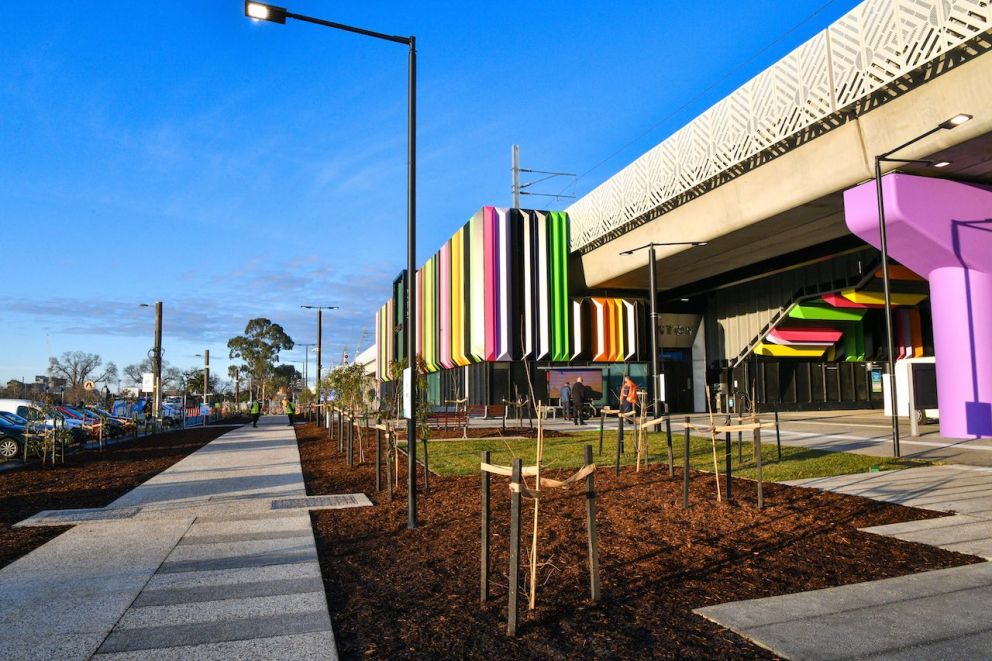
While it was quieter on the network, we continued to move at pace supporting the major rail infrastructure program that is well underway here in Melbourne. It has been anything but quiet.
At Metro, we have continued to focus heavily on safety, diversity and inclusion, sustainability and wellbeing. Certainly, the safety and wellbeing of our people and passengers will always be the foundation of our organisation.
COVID has taught us all some very valuable lessons and reinforced to us just how profoundly important these things are. It has taught us how to be caring, more flexible, more inclusive.
We have been transforming at a rapid pace, from the inside out – striving for the very best outcomes for our people and our industry.
We continue to deliver city-shaping projects, such as the Level Crossing Removal program of works with our project alliance partners.
Since February 2020 when people started working from home, we have removed 36 level crossings and re-built 18 stations.
The total tally now stands at 67 level crossings removed and 38 stations rebuilt since 2015 as part of the Level Crossing Removal Project.
Truly mind-boggling when you consider that all of this has taken place in just seven years, almost three of which were during a global pandemic.
We are now gearing up for the opening of the dual nine-kilometre tunnels and five new underground stations as part of the Metro Tunnel project in 2025.
Our latest new fleet of High-Capacity Metro Trains have begun entering service and will eventually run through the Metro Tunnel from Pakenham/Cranbourne all the way to Sunbury, allowing more trains, more often.
More level crossings will be removed, and works will ramp up on the new Melbourne Airport Rail – projects that will keep our city busy for years to come and cement public transport as the life blood of moving people around our city.
As we all strive for a more sustainable future, it is encouraging that Victorians continue to be committed to this journey to upgrade and expand the rail network, so that Melbourne keeps its place as one of the most liveable cities of the world.
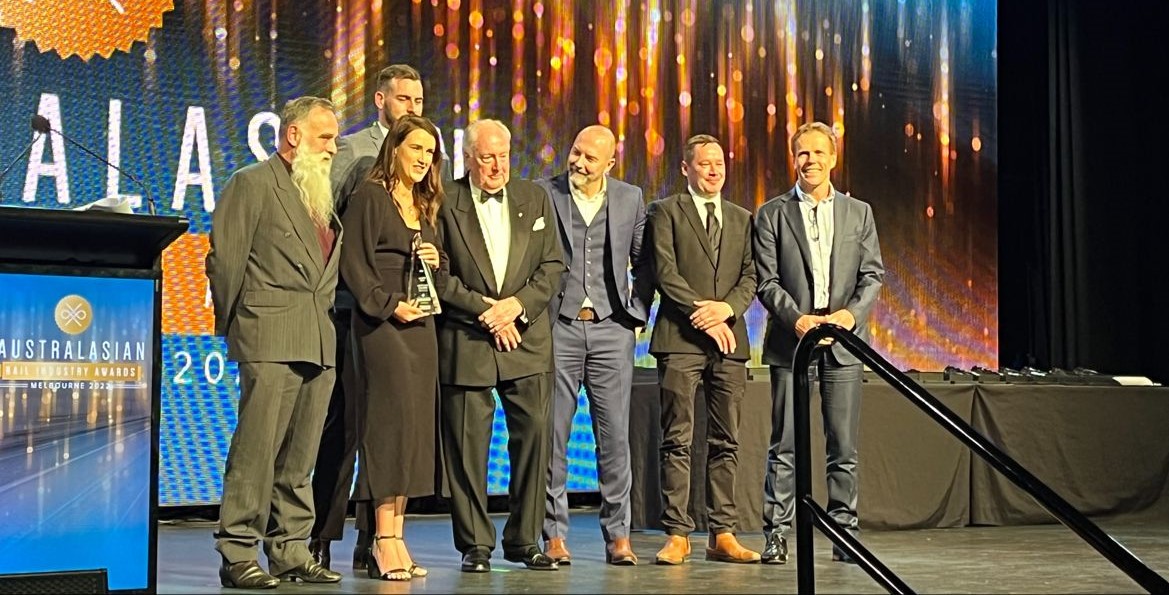
Trespassing continues to challenge us – last year there were more than 3,000 incidents of trespassing recorded on Melbourne’s metropolitan rail network.
These incidents regularly cause delays to our train services and can also be traumatic for Metro’s drivers, station staff and passengers.
This continues to push us to innovate to protect our people and our network.
In August, Metro’s Train Services team was recognised at the Australasian Rail Industry awards for our Train Driver Trauma Recovery Guidebook.
The guidebook was developed to support rail industry workers involved at the scene of an incident on the rail network and provides drivers with important information about what to expect and the support services available.
The guidebook has been issued to every qualified and trainee driver on the Metro network and has been shared widely across the industry to support the wellbeing of rail workers – because no one should feel alone or unsupported.
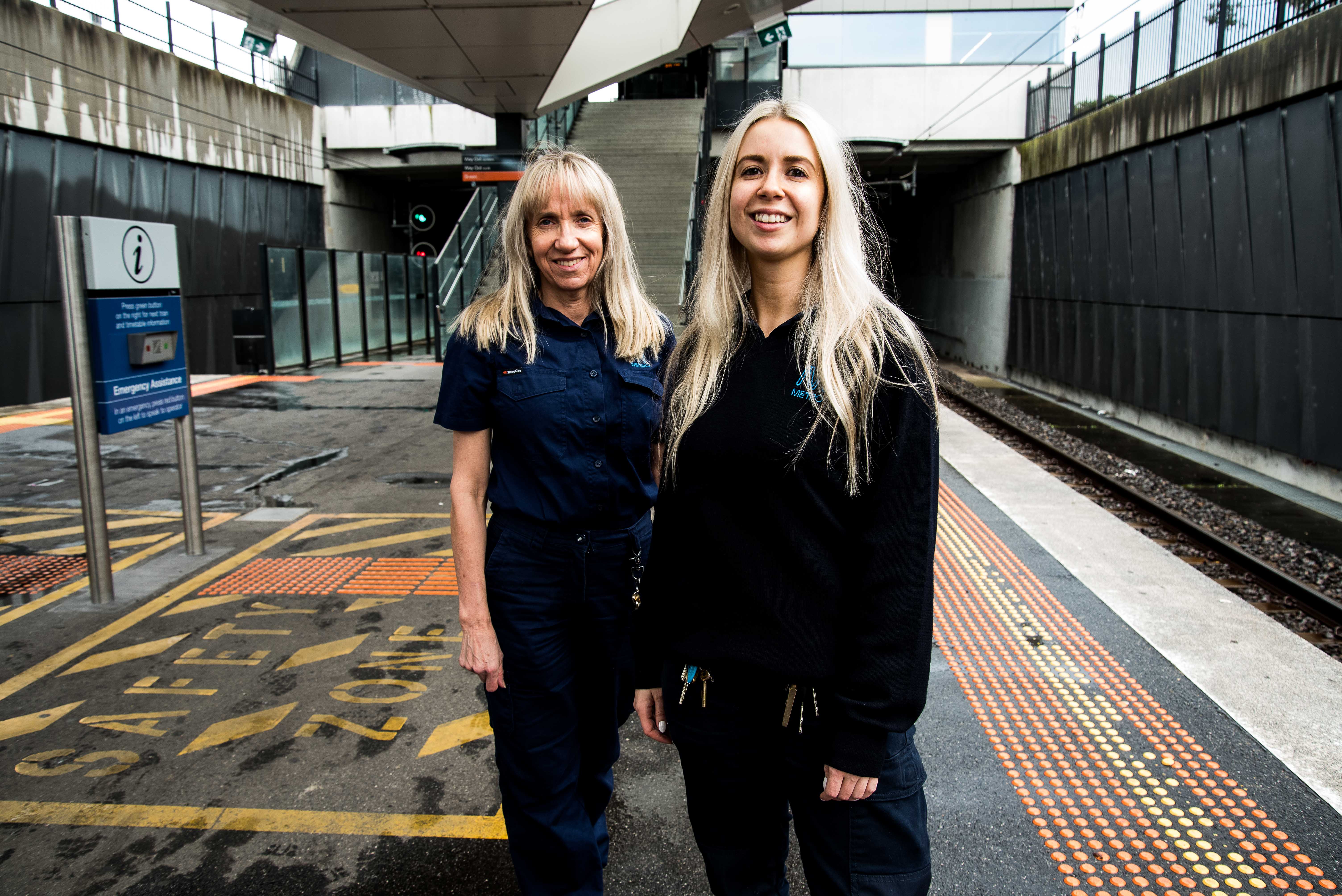
This year, we also welcomed our 500th female driver to Metro – the highest number of female drivers on any rail network in Australia.
In 2009, there were just 26 women driving trains on our network. Now, women represent 37 per cent of all Metro drivers, and we are excited to see this number growing.
In a traditionally male-dominated industry, we should all be working hard every day to break down barriers for women and create a flexible working environment where everyone feels welcomed and supported.
And we are working at this from the very roots of our organisation.
Now in its ninth year, 87 per cent of graduates who have completed our Engineering Graduate Program are still employed by Metro.
We are incredibly proud of our graduate program and its success over the years in attracting and retaining talent in the industry, and of our graduates, who will shape the future of Australia’s rail networks.
The rail industry is vast and interesting and there are opportunities for anyone who wants to join, and it is so important that we foster a culture of diversity and inclusion.
As we leap into 2023, three years since the start of the pandemic, it is clearer than it has ever been: that not only have our work habits changed, but so too have our attitudes to work and the need to strive to do better for our people.
That’s my focus. Let’s be the change we want to see in this industry.
Raymond O’Flaherty, CEO Metro Trains Melbourne
This article first appeared in Infrastructure Magazine.
